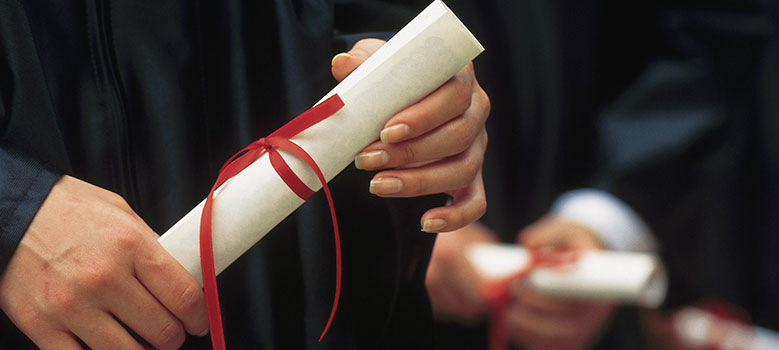2018-2019 CATALOG [ARCHIVED CATALOG]
Courses Offered
|
|
|

A grade of “C” or better is required in all prerequisite courses and in all courses specified by course numbers in the summary of required hours.
Note: Any program directed or technical electives, all Allied Health programs, Associate of Science in Teaching (AST), and Technical Certificates requires “C” or better in all course work.
|
| |
Music – General |
| |
|
| |
|
| |
|
| |
|
| |
|
| |
|
| |
|
| |
|
Music – Applied Instruction Music – Instruction and Performance
Music majors must take at least one course from Applied Instruction and one from Performing Ensemble each semester. Designated courses are repeatable for credit, but no more than 12 hours of Applied Instruction and/or Performing Ensemble, in any combination, may be applied toward a degree. |
| |
|
| |
|
| |
|
| |
|
| |
|
| |
|
| |
|
| |
|
| |
|
| |
|
| |
|
| |
|
| |
|
| |
|
| |
|
| |
|
| |
|
| |
|
Music – Performing Ensemble Music – Instruction and Performance
Music majors must take at least one course from Applied Instruction and one from Performing Ensemble each semester. Designated courses are repeatable for credit, but no more than 12 hours of Applied Instruction and/or Performing Ensemble, in any combination, may be applied toward a degree. |
| |
|
| |
|
| |
|
| |
|
| |
|
| |
|
| |
|
| |
|
| |
|
| |
|
| |
|
| |
|
| |
|
Natural Science |
| |
|
Network Management |
| |
|
| |
|
| |
|
| |
|
| |
|
| |
|
| |
|
| |
|
| |
|
| |
|
Nuclear Medicine Technology Admission to the Nuclear Medicine Technology Program is a prerequisite for all NM courses. Please consult the SUMMARY OF REQUIRED HOURS. All courses shown in the same term are corequisites and all courses shown in the preceding term(s) are prerequisites. |
| |
|
| |
|
| |
|
| |
|
| |
|
| |
|
| |
-
NUCM 2201 - Physics and Instrumentation (2)
Basic nuclear medicine physics to include interactions of radiation with matter. Introduction to principles of instrumentation in the nuclear medicine laboratory with emphasis on components, application, maintenance, and quality control of imaging/non-imaging equipment, as well as a focus on developing a quality assurance program.
Coreq(s): NUCM 2200, NUCM 2104, NUCM 2205, NUCM 2607, NUCM 2114 [F]
Click here for Fall course scheduling information.
|
| |
|
| |
-
NUCM 2208 - Radiopharmacology (2)
Basic principles of radiopharmacy and pharmacology as practiced in the nuclear medicine laboratory; special emphasis on radionuclide and radiopharmaceutical preparations, radiation safety, quality control procedures and operation of equipment.
Prereq(s): NUCM 2200, NUCM 2301, NUCM 2104, NUCM 2205, NUCM 2607, NUCM 2114 Coreq(s): NUCM 2312, NUCM 2215, NUCM 2617 [S]
Click here for Fall course scheduling information.
|
| |
-
NUCM 2215 - Clinical Procedures 2 (2)
Biological, molecular, physiological and anatomical aspects of nuclear medicine clinical procedures. Gastrointestinal, genitourinary and endocrine systems; radionuclide therapy, intro to in-vivo non-imaging procedures, in-vitro procedures, and healthcare administration.
Prereq(s): NUCM 2200, NUCM 2104, NUCM 2205, NUCM 2607, NUCM 2114 Coreq(s): NUCM 2208, NUCM 2312, NUCM 2617 [S]
Click here for Fall course scheduling information.
|
| |
-
NUCM 2312 - Advanced Instrumentation and Radiation Biology (3)
Principles of advanced instrumentation to include: single photon emission computed tomography (SPECT), computer applications, medical informatics, and statistics. An in depth review of radiation protection, biology and physics as related to nuclear medicine.
Prereq(s): NUCM 2200, NUCM 2301, NUCM 2104, NUCM 2205, NUCM 2607, NUCM 2114 Coreq(s): NUCM 2208, NUCM 2215, NUCM 2617. [S]
Click here for Fall course scheduling information.
|
| |
|
| |
|
| |
|
| |
|
| |
|
| |
|
Nursing (RN) Admission to the Nursing Program is a prerequisite for all NS courses unless otherwise noted. Please consult the SUMMARY OF REQUIRED HOURS; all BIOL and PY courses are pre/corequisite to the NS courses as shown. All Nursing courses must be completed in sequence. |
| |
|
| |
|
| |
|
| |
|
| |
|
| |
|
| |
|
| |
|
| |
|
| |
|
| |
|
| |
|
| |
|
| |
|
Maintenance Technology |
| |
|
| |
|
| |
|
| |
|
| |
|
| |
|
| |
|
| |
|
| |
|
| |
|
| |
|
| |
|
| |
|
| |
|
| |
|
| |
|
| |
|
Office Administration |
| |
|
| |
|
| |
Page: 1 <- 2
| 3
| 4
| 5
| 6
| 7
| 8
| 9
| 10
| 11
| 12
|
|